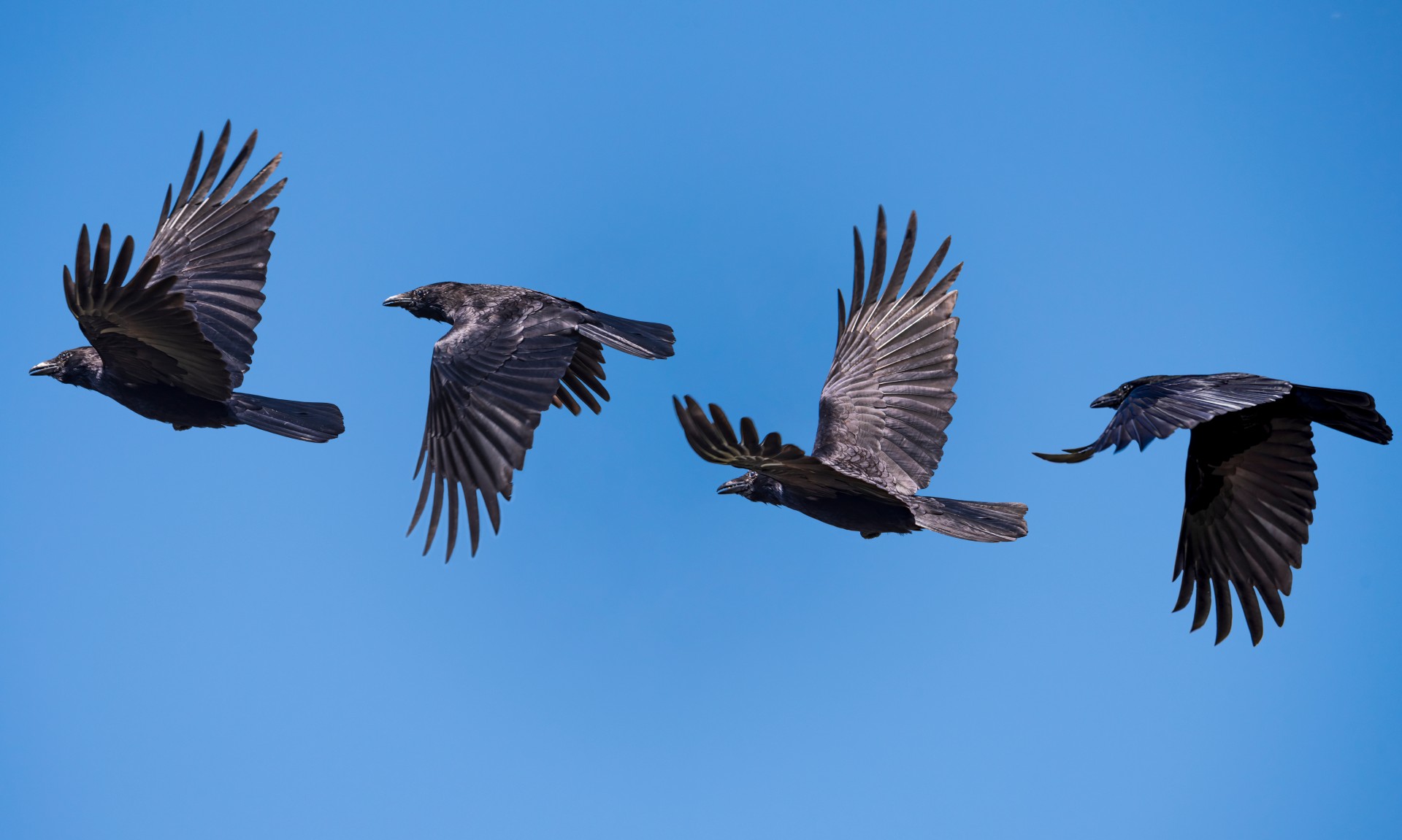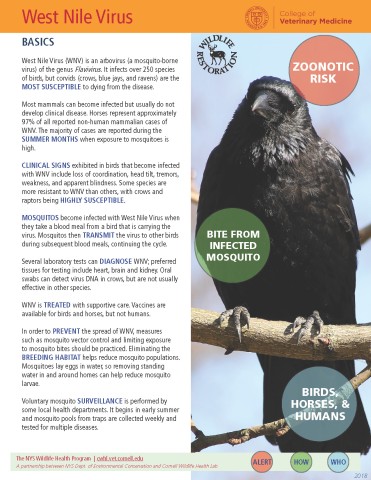As summer moves into high gear, the number of cases of West Nile virus (WNV) infection in birds is also rising. West Nile virus is transmitted to birds by infected mosquitoes. While all species of birds are susceptible to infection and disease from WNV, crows are one of the most susceptible species. When the virus was first identified in birds in New York City in 1999, infection by WNV would have been a death sentence for crows. However, a recent paper describes five infected crows that survived infection after treatment and were released back into the wild, providing hope for the future.
“Survival and Release of Five American Crows (Corvus brachyrhynchos) Naturally Infected with West Nile Virus”, published in the Journal of Avian Medicine and Surgery as a Clinical Report, describes five crows admitted in 2017-2018 to the Janet L. Swanson Wildlife Hospital at Cornell. The crows were in poor body condition and showed neurologic signs, including weakness, tremors, and incoordination. All five crows tested positive for WNV. After intensive treatment with fluid therapy, pain medication, antibiotics, and antiparasitic drugs, all birds improved and were released to a wildlife rehabilitator. Once they regained their strength and were functioning normally, all five birds were released—a first for WNV-infected crows.
The paper also presents results of laboratory tests to determine infection status, viral shedding, and antibody levels in the crows. The authors state that antibody titers may be a way to detect other crows that survive WNV infection.
The authors discuss possible reasons for the birds’ survival. West Nile virus has been circulating in crows in the US for over 20 years. Crows may be adapting to the infection allowing some to survive infection. At the same time, the virus is evolving. New strains of WNV have emerged which may be less virulent than the strain originally isolated from infected birds. As the relationship between crows and WNV continues to change, we may see more crows surviving infection. The ominous whine of mosquitoes in summer may not hold the same dread for the wildlife community.
Hopf C, Bunting E, Clark A, Childs-Sanford S. 2022. Survival and release of five American crows (Corvus brachyrhynchos) naturally infected with West Nile virus. Journal of Avian Medicine and Surgery 36(1):85-91. https://doi.org/10.1647/20-00112




